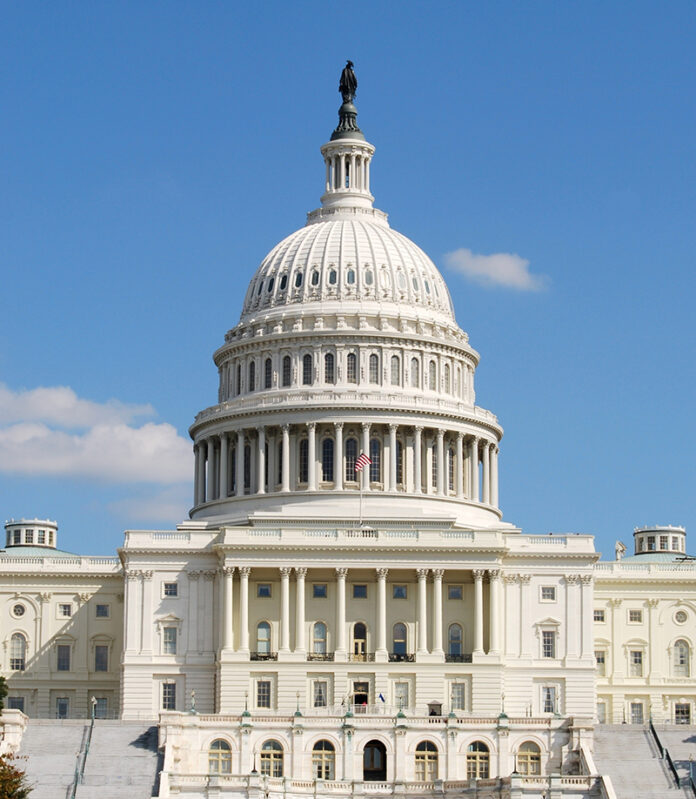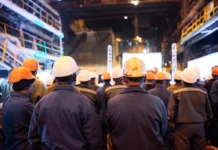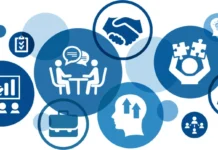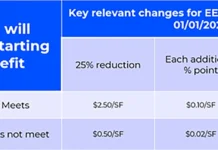by Liz Stevens, contributing writer
Plastics Business
Editor’s Note: The Manufacturers Association of Plastics Processors (MAPP) once again has partnered with Plastics Industry Association (PLASTICS) for the 2019 Plastics Industry Fly-In. The event, to be held March 26 and 27 at the St. Regis, Washington, DC, smooths the way for plastics processors to meet with their state senators and representatives in the nation’s capital. The late Bill Carteaux, former president and CEO of PLASTICS, was a driving force behind the Plastics Industry Fly-In. His presence will be greatly missed.
Legislation aimed at the plastics industry is widespread – and heavily covered in the news media. Since 2009, 13 states have enacted bans on the use of BPA (bisphenol A). The City of Seattle banned plastic straws in 2018. In 2019, San Diego joined a growing number of cities to ban Styrofoam containers. And, few recent developments can compare to the impact of tariffs, including the tariff on Chinese steel injection molds that now has been suspended – at least for 2019.
Those legislative actions, while significant, are not the only items being discussed in Washington, DC, that concern the plastics industry. Plastics business owners and leaders also could see significant impact from decisions on healthcare, employment training and even the US Postal Service.
Plastics manufacturers have opportunities to be proactive on these and other issues by creating relationships with their local, state and national political representatives. These relationships give manufacturers the chance to drive the narrative on plastics by presenting the industry’s entire story, heralding its value and correcting misperceptions. Meeting with representatives also gives manufacturers the stage to describe how proposed legislation will impact their businesses, employees and customers.
Leaning in on legislation
Glen Fish of Revere Plastics Systems, LLC in Novi, Michigan, and Ben Harp, of Orchard Park, New York-based Polymer Conversions, participated in last year’s plastics industry legislative event. In separate interviews, they shared their thoughts on issues of great concern to manufacturing companies and about their experiences in Washington, DC.
Harp, chief operating officer at Polymer Conversions, has attended the last two Fly-Ins. “The morning starts out with a speech from an elected official or someone in the Cabinet,” he said. “The speeches kick off the tempo of the day because they tell us what is important to the current administration.” The day then moves on to personal visits, where attendees meet with their state’s legislators. “We get to sit with them and their staff and talk through the things that are important to us and the challenges to our businesses,” Harp continued.
For Revere Plastics’ President Glen Fish, the one-on-one time provided valuable perspective. “It was interesting to get the legislators’ take on the open issues that affect our industry and to hear their positions and actions they are taking,” he said. “The meetings often put you together with others in the industry, including machine builders or resin suppliers, so you get the bigger picture on every issue.”
One issue of importance to Fish – and the industry as a whole – is the education of a skilled workforce. “There is a severe shortage now – to the point of an epidemic,” Fish stated. “As technology advances and manufacturing processes continue to become more sophisticated, the need for skilled workers is only going to increase. We are staring at a potential crisis that can be improved if we start acting now.”
Harp agreed, mentioning the value of apprenticeship programs and the opportunities a visit with legislators can bring to advocate for agendas that include skilled labor shortages. Polymer Conversions has an established apprenticeship program, and he talks it up with federal lawmakers. “Getting in front of our legislators creates an opportunity to tell them about the importance of programs like that,” he explained, “and the importance of those legislators possibly getting behind programs that incentivize smaller molding and tooling companies so that those companies can spread that investment power across even more training opportunities.”
Harp also described interactions with legislative representatives on issues that are not plastics industry-specific. “We also talked about healthcare and the Affordable Care Act,” he said. “The restrictions in that healthcare legislation have been significantly burdensome to our business.”
Summing up the value of personal interaction with political representatives, Harp said, “Since officials pull their information from various entities and agencies, it’s an opportunity to communicate with them, unfiltered, on the topics that are important to us. Then, we can help influence things on Capitol Hill in a way that’s favorable to our businesses and industry.”
While federal outreach through events like the Plastics Industry Fly-In are valuable, Fish also stays in contact with state and local politicians. While it can be frustrating to advocate for change at the federal level because of a lack of immediate action when concerns are raised, communication at the local level is often more efficient. “We do see more immediate action as we move toward the local level,” he said. “The problems being addressed are more tactical, and the local governments typically move more quickly.”
Fish described some of the issues he has shared with legislators. “We have met with local and state government to discuss potential incentives or assistance that could help us on a major capital investment for a new business project,” he said. “They have all been very supportive of our efforts.”
Fish also has invited US representatives to visit his facilities. “We had US Representative Tre Hollingsworth of Indiana visit our facility to help celebrate a safety milestone of 1 million hours worked without lost time,” he said. “US Representative Jim Jordan toured our Clyde, Ohio, facility and discussed some of our challenges while seeing what our factory manufactures.”
Those visits provide yet another way for plastics manufacturers to share concerns and insights with local, state and federal lawmakers. Lawmakers can only support and advocate for who (and what) they know – one of the most persuasive arguments that can be made for speaking up and developing relationships with those setting the political agenda.
Plastics Industry Fly-In Information
The annual Plastics Industry Fly-In is a key event that offers plastics manufacturers access to federal lawmakers and decision makers in Washington, DC. Fly-In activities will take place on Wednesday, March 27, with a morning of briefings at the hotel, along with afternoon meetings on Capitol Hill and an evening reception on Capitol Hill. Information about the Fly-In, including registration, agenda and accommodations, can be found at www.plasticsindustry.org/event/2019-spring-national-board-meeting-plastics-industry-fly. For more information, contact the MAPP offices at 317.913.2440.
Those in the plastics manufacturing industry who would like to identify and reach out to a US representative in the House can start by visiting www.house.gov/representatives/find-your-representative. To locate US senators, visit www.senate.gov/ and click on the “Find your Senators” link at the top of the page.





